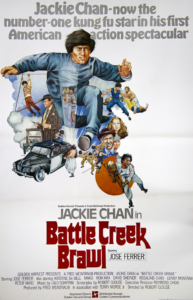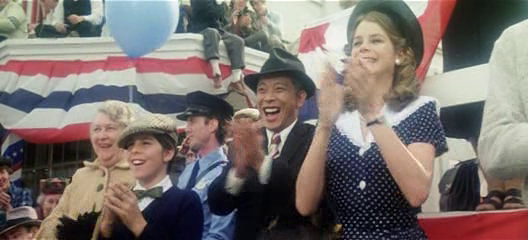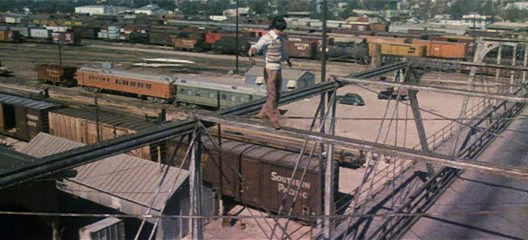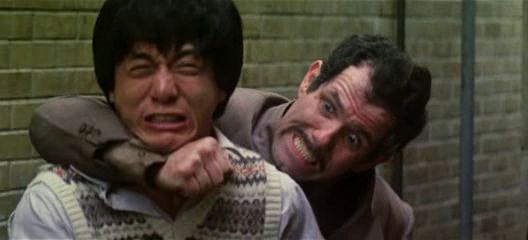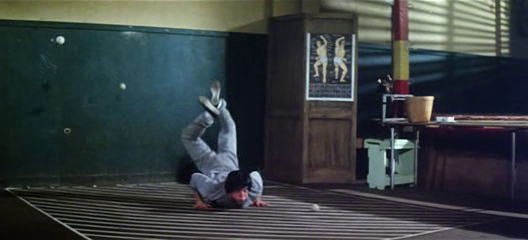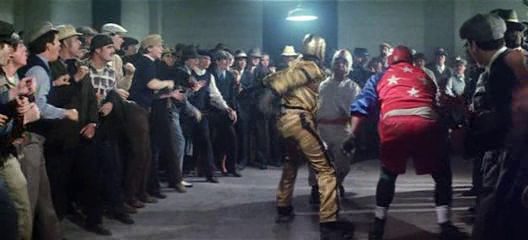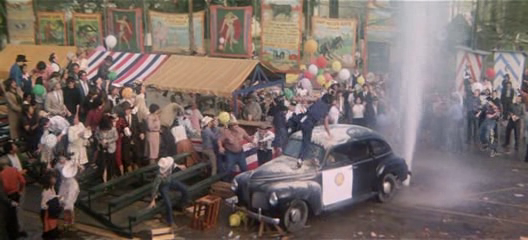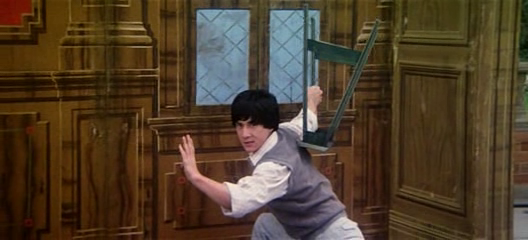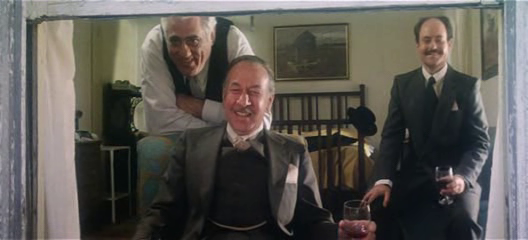Big Brawl, The / Battle Creek Brawl (1980)
“That kid don’t fight right. He fights foreign.”
|
Synopsis: |
|
Genres, Themes, Actors, and Directors:
Review:
Film fanatics of today — living in the 2020s with access to nearly everything — have so much more to choose from, and clearly, we all should see at least one Jackie Chan movie (though which one, I’m still not positive). Regarding this earlier film, Chan acquits himself masterfully, and it’s actually a little puzzling as to why it didn’t have more of an impact at the time. The comparisons with Bruce Lee are obvious, but he also possesses a clown-like quality that is quite endearing. It’s also refreshing to see him in an inter-racial relationship with Kristine DeBell, who is his number one fan and supporter: … in addition to his uncle (Mako), who is his trainer. From Chan’s initial acrobatics high up above the city in some scaffolding: … to his first fight in an alley outside his father’s shop (when he alternates between offensive moves and pretending to be hurt): … to seeing him training for ultimate dexterity with his uncle: … it’s incredibly clear how much talent and stamina this man has. Meanwhile, his participation in a lengthy roller skate obstacle race (which also involves landing on mattresses and being hosed down by fierce water spigots): … had me wondering anew about the infinite creativity of competitive money-making ventures during the Depression (though who knows how realistic this is). The culminating fight sequence on the streets of Texas is also noteworthy for its carnival-like atmosphere and some genuine tension between Chan and his much bulkier competitors. Note: The film is clearly set precisely in 1930, given that we see a movie poster for Morocco (1930) on the theater Chan enters into near the end. Notable Performances, Qualities, and Moments: Must See? Links: |
